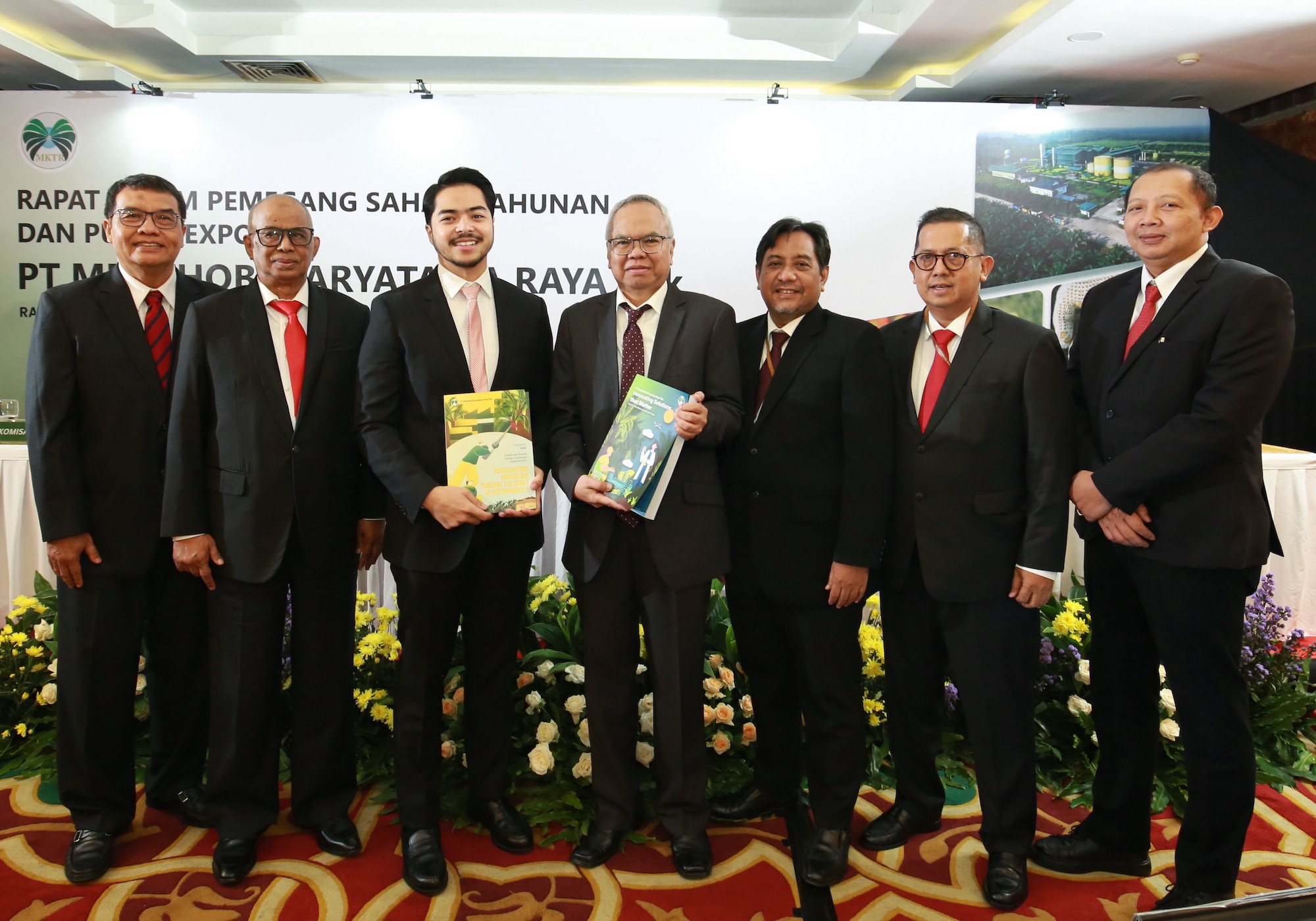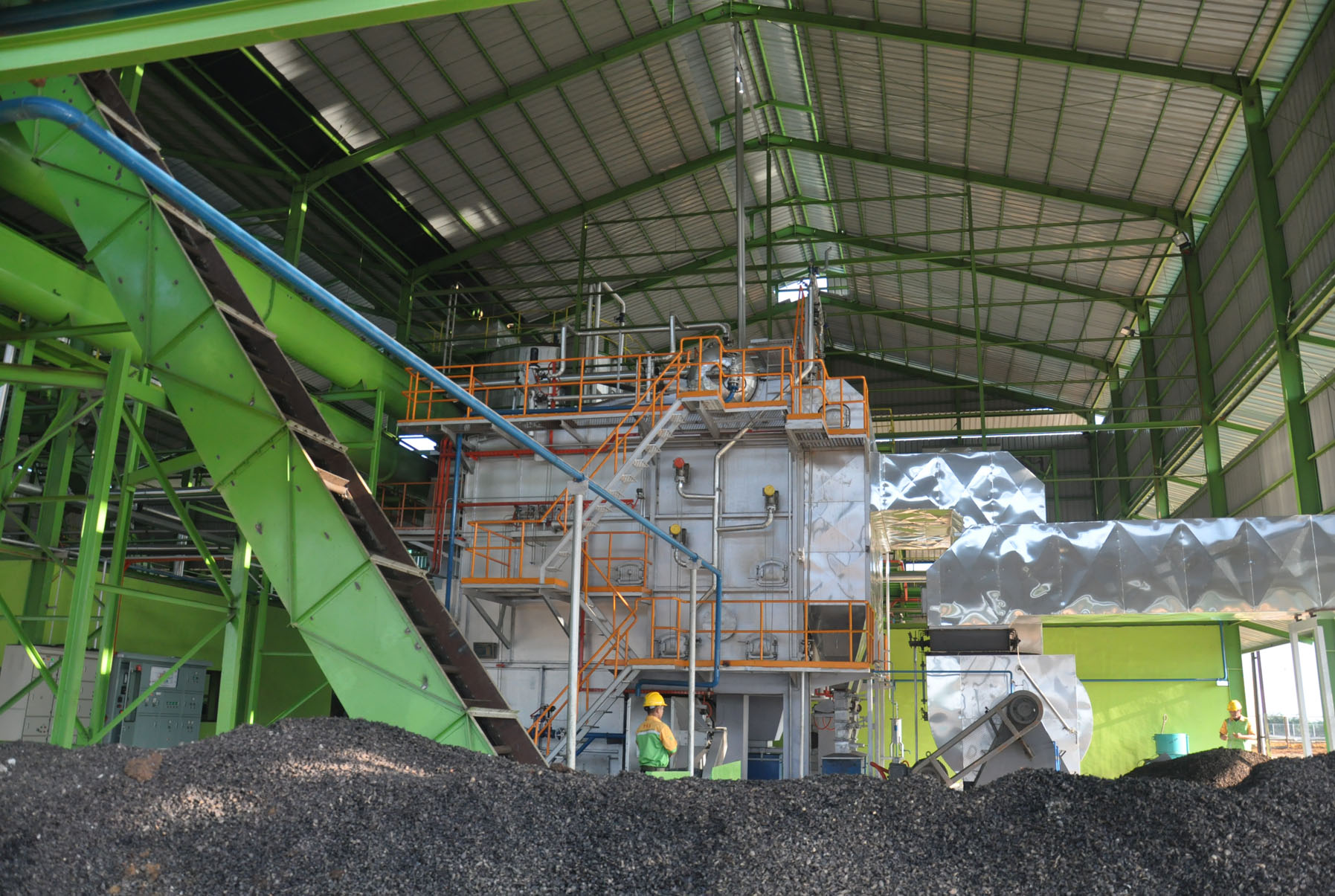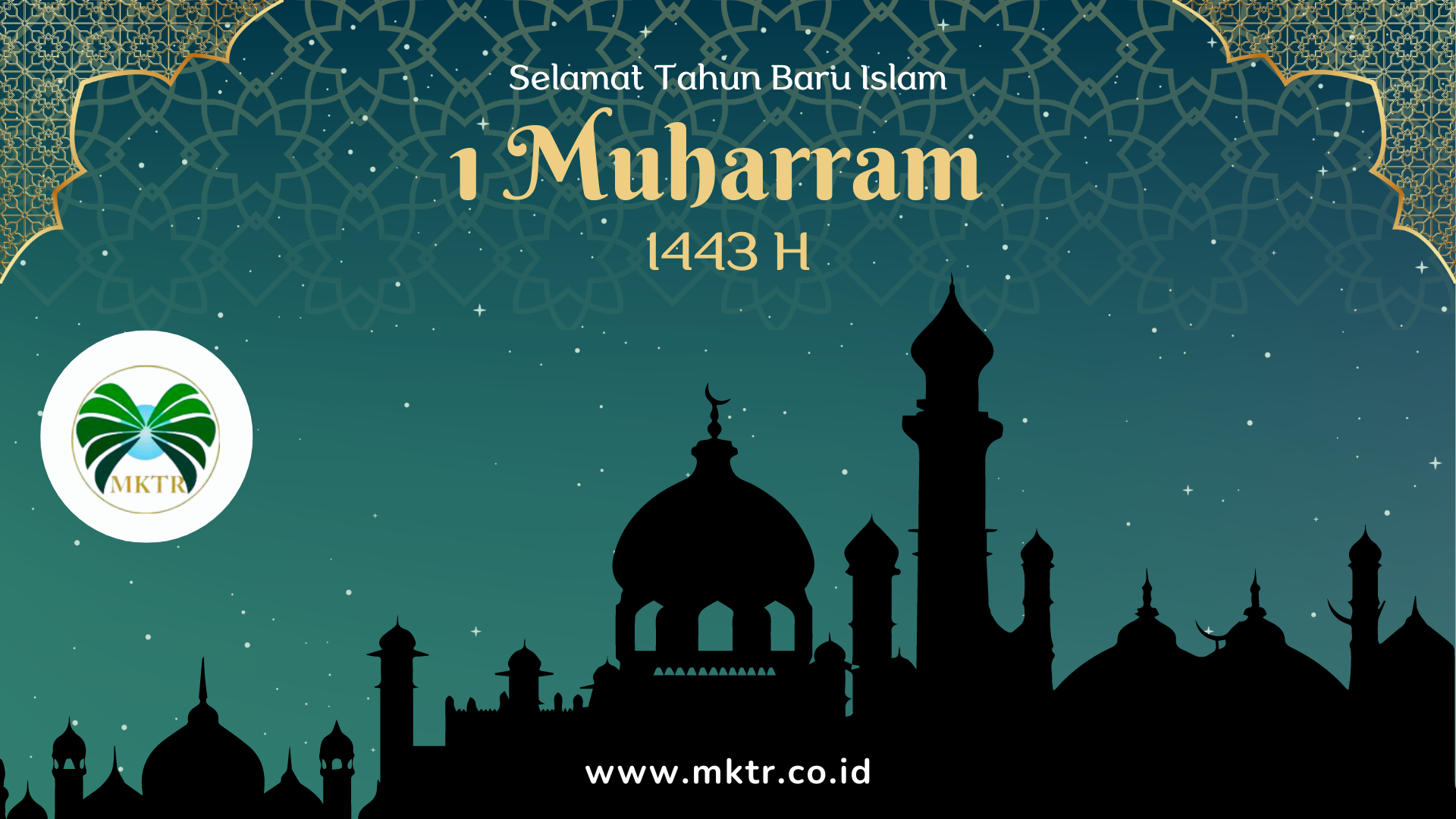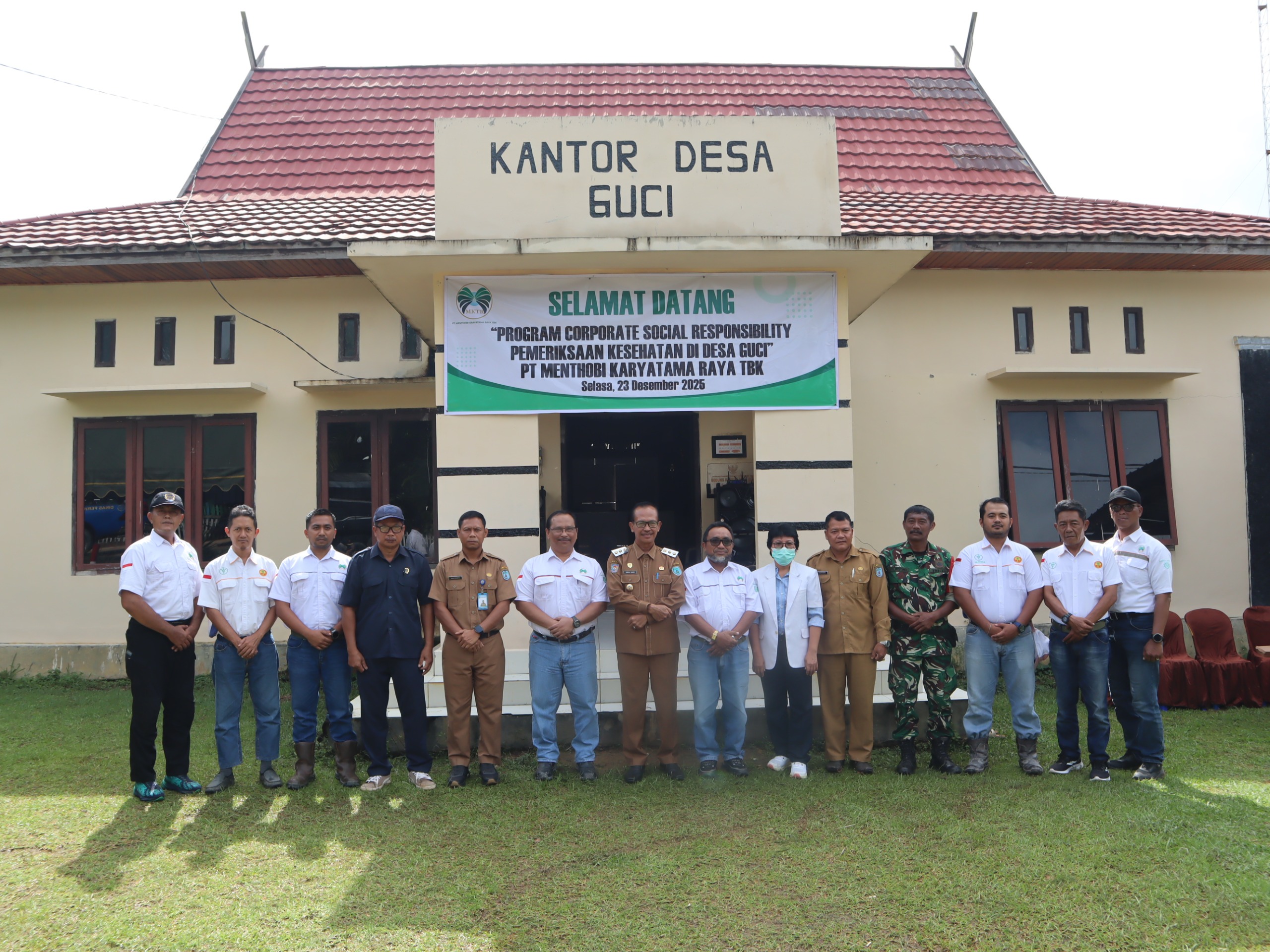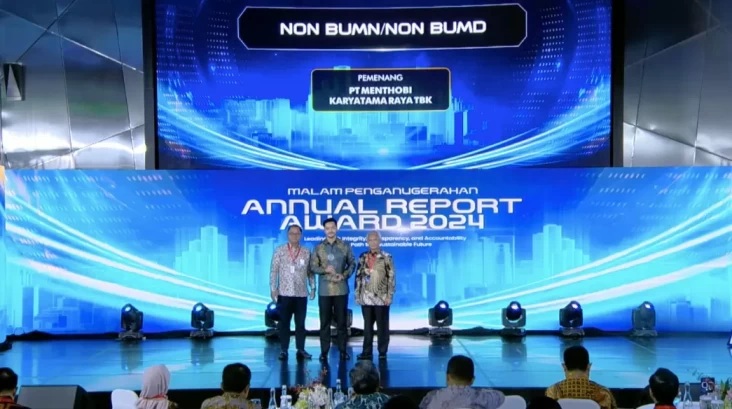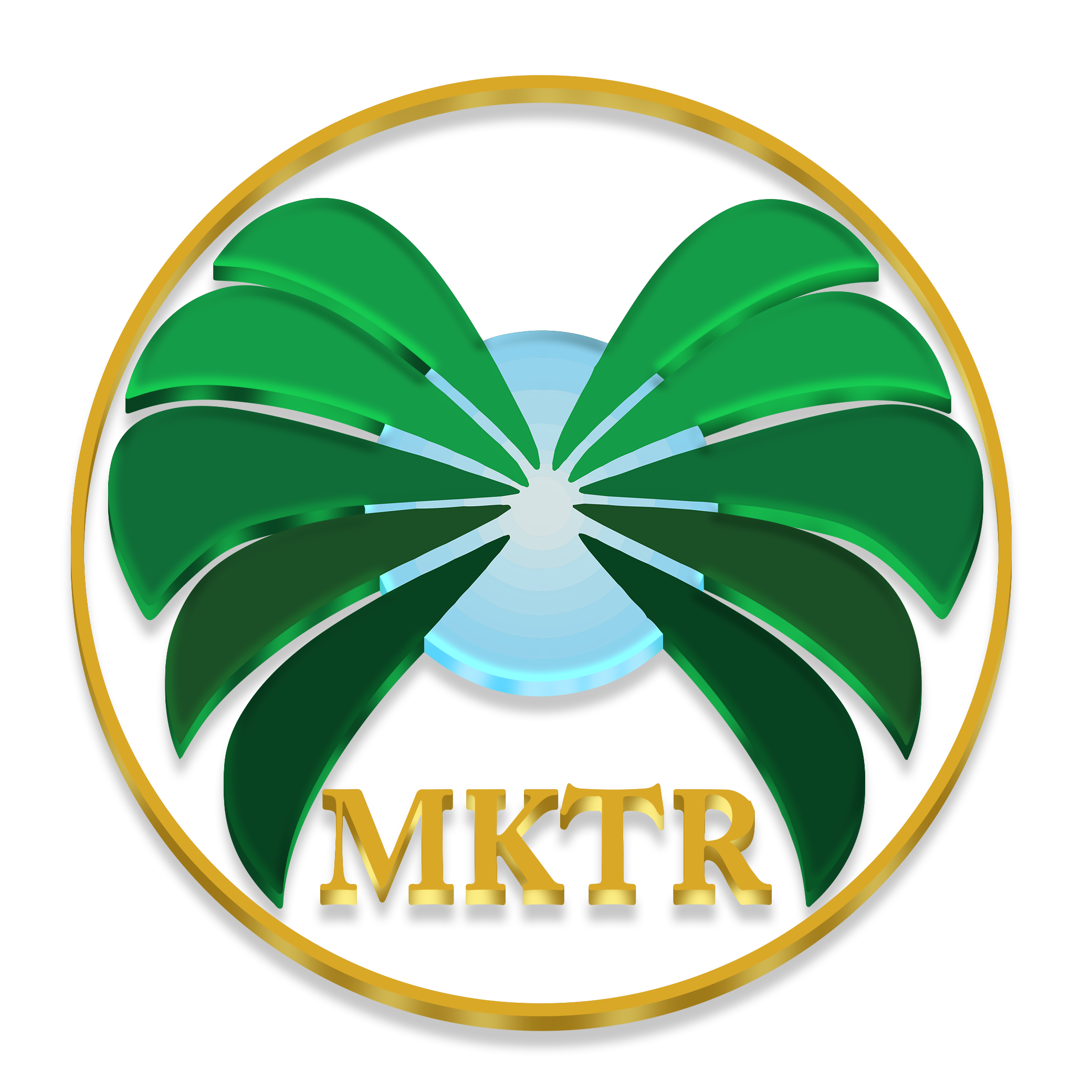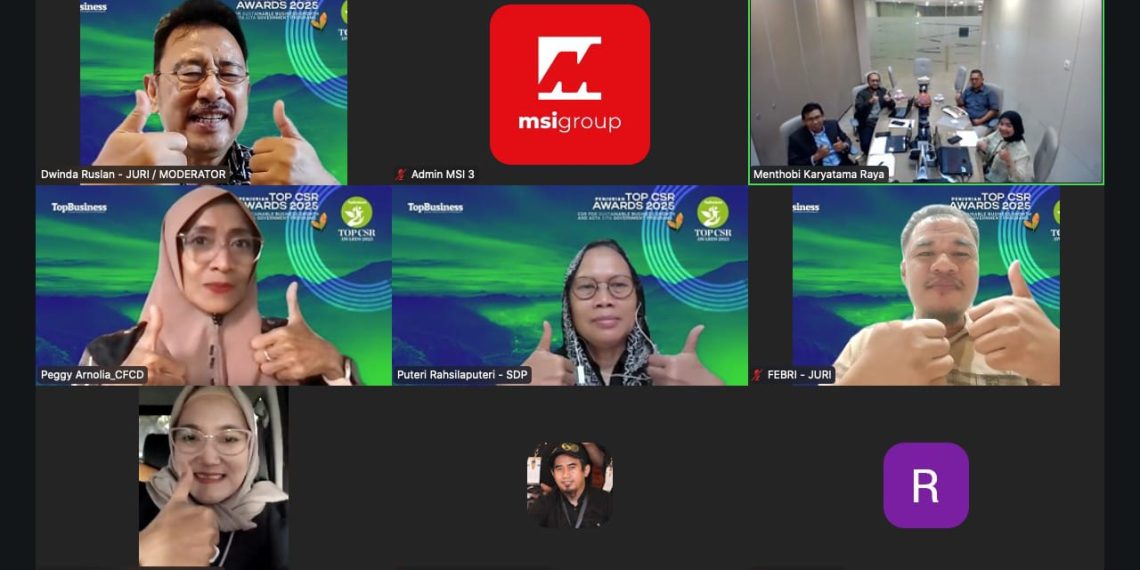
28
Apr
Developing Sustainable Business, MKTR's CSR Program Supports Zero Waste Agribusiness
For the First Time, PT Menthobi Karyatama Raya Tbk (IDX: MKTR) Joins the Judging Process for the TOP CSR Awards 2025
For the first time, PT Menthobi Karyatama Raya Tbk (IDX: MKTR) has participated in the judging process of the TOP CSR Awards 2025. It was revealed during the process that the Company has implemented numerous Corporate Social Responsibility (CSR) programs to address the impact of its business operations.
Through these CSR initiatives, MKTR has become one of the nominees for the 2025 TOP CSR Awards organized by TopBusiness Magazine. During the judging session, the MKTR team presented a series of CSR programs aligned with sustainability practices, ultimately achieving a zero-waste agribusiness model.
Present during the judging session were Mohammad Arief Pahlevi Pangerang, Director of Sustainability & Partnership; Anindito Widya Wicaksono, Investor Relations and Head of Corporate Communication; Ilhamd Fitriansyah, Corporate Secretary; and Muthia, Corporate Communication Staff.
“For us, the core of our CSR program is rooted in the concept of Trimitra Harmony—a partnership between the company, government, and society. These three elements coexist in one environment. This principle guides us, as we aim to maintain balance among the three. Additionally, we strongly uphold the spirit of a zero-waste plantation, where even the waste is fully processed,” said Arief Pahlevi during the online judging on Tuesday (April 23, 2025).
MKTR operates palm oil plantations in three villages: Kujan and Guci in the Bulik subdistrict, Lamandau Regency, Central Kalimantan. According to Arief, the CSR programs are focused on the communities in these villages.
“Our presence must bring benefits to the regions where we operate. These three villages are our main concern. One of our efforts includes forming partnerships through cooperatives. We implement two partnership models: mandatory plasma and partner plasma,” he explained.
MKTR is a plantation company headquartered in Jakarta and is part of the Maktour Group, a leading Hajj and Umrah travel agency in Indonesia, led by Fuad Hasan Masyhur. Currently, MKTR is involved in the palm oil industry, with plantations and processing facilities located in Central Kalimantan. The company emphasizes best corporate governance through an integrated system of production, processing, and waste utilization. MKTR went public in 2022.
Its vision is: “To become a company that produces the best zero-waste agribusiness commodities focused on added value and environmental preservation.”
Its mission: “To build sustainable and environmentally friendly agribusiness through best agronomic practices and innovation, creating optimal added value for all stakeholders.”
“We are firmly committed to achieving a zero-waste agribusiness,” said Anindito.
He explained that MKTR currently manages 8,500 hectares of planted palm oil. The operation is supported by two palm oil mills with a capacity of 60 TPH (tons per hour), two organic fertilizer plants with a total capacity of 8 TPH, one kernel crushing facility with a capacity of 60 TPD (tons per day), and a pilot biomass pellet plant with a capacity of 2 TPD.
MKTR's business strategies include:
-
Increasing cost efficiency and sustainable productivity through the implementation of Good Agronomic Practices and Good Manufacturing Practices.
-
Strengthening the company’s commitment to CSR, local community development, and sustainable environmental initiatives.
-
Selectively exploring land acquisition and strategic partnerships to support business expansion.
-
Developing and diversifying the zero-waste palm oil industry.
Sustainable Business
Further, Anindito emphasized the company’s dedication to sustainable business practices—from top management down to the operational level.
“Sustainable growth is the foundation of our business strategy. We integrate economic, social, and environmental aspects into strategic planning to ensure synergy,” he said.
“Sustainability is part of our DNA and must be instilled by the company owners. We encourage local communities to synergize and support business operations, ensuring business continuity through efficiency and innovation.”
Operational and efficiency strategies include:
-
Integration of sustainability vision,
-
Strengthening operational performance,
-
Efficiency and risk management,
-
Commitment to social and environmental responsibility,
-
Good Corporate Governance (GCG),
-
Long-term value creation.
Regarding the CSR management objectives aligned with business strategy, Anindito said the first is to improve community welfare.
MKTR engages local entrepreneurs in its operations. For instance, transporting palm fruit requires around 60 dump trucks per day, while the company owns only 15. The rest are provided by local entrepreneurs, including village heads, regional cooperatives, and small farmers.
“This helps maintain local economic stability,” he noted.
The company also focuses on building harmonious stakeholder relations through its Trimitra Harmony model and supports social and environmental resilience. One program involves producing organic fertilizer through its subsidiary, PT Mentobhi Hijau Lestari, using empty fruit bunches (EFB) from palm oil as raw material.
“This is an innovation in the palm oil industry. We turn what was once considered waste into something valuable—organic fertilizer,” he explained proudly.
The organic fertilizer program includes a scheme called "Bring Cash, Go Home with Fertilizer," which targets smallholder farmers often facing fertilizer shortages due to lack of subsidies and high market prices.
“With our organic fertilizer, they can at least meet their crops’ nutrient needs. Payment can even be made using palm fruit, and in three installments,” he added.
Other strategies include integrating CSR into business strategies and building public trust and reputation.
CSR Programs
Anindito explained that MKTR has implemented many CSR initiatives as part of its corporate responsibility for business impacts.
Some of these programs include:
-
Forest conservation and management of High Conservation Value (HCV) areas,
-
Partnerships with local farmers and strengthening supply chains,
-
ISPO and ISO 9001 certification for farmers,
-
Social and cultural programs for local communities,
-
Waste utilization and environmentally friendly transportation,
-
MKTR Achievement Scholarships,
-
Plasma farmer partnerships,
-
Development of educational and public facilities.
“For the HCV forest conservation program, we manage a conservation area of about 42 hectares, which is isolated and protected. As for farmer partnerships and supply chain strengthening, we’ve partnered with around 1,500 farmers who manage a total of about 1,500 hectares,” he said.
Regarding waste management and eco-friendly transportation, MKTR claims to produce no waste, as palm oil by-products are used to make organic fertilizer.
“We are developing biomass pellets, which can even serve as fuel for coal-fired power plants (PLTU). With co-firing, these plants can mix coal with biomass. God willing, this year we will build the biomass pellet plant commercially to produce 10 tons per hour, or 60,000 tons annually,” he said.
Anindito also highlighted MKTR’s flagship CSR program: the MKTR Achievement Scholarship. The company offers scholarships to high-achieving students in its operational areas, aiming to improve educational access and foster local human resource development.
Another CSR program is the Plasma Farmer Partnership, where MKTR provides quality seeds, farming training, and cooperative assistance to increase productivity and farmer welfare.
“This aligns with Asta Cita Goal No. 1: Promoting economic self-reliance of communities, and Priority Program No. 3: Strengthening food security and sustainable agriculture. This program increases farmer income, strengthens local food resilience, and fosters mutually beneficial relationships between the company and the community,” he explained.
Finally, MKTR also focuses on developing educational infrastructure and public facilities.
“We build and renovate educational and public infrastructure such as roads, bridges, and places of worship to improve the quality of life in surrounding villages near the MKTR plantations,” he concluded.
Source : https://www.topbusiness.id/

